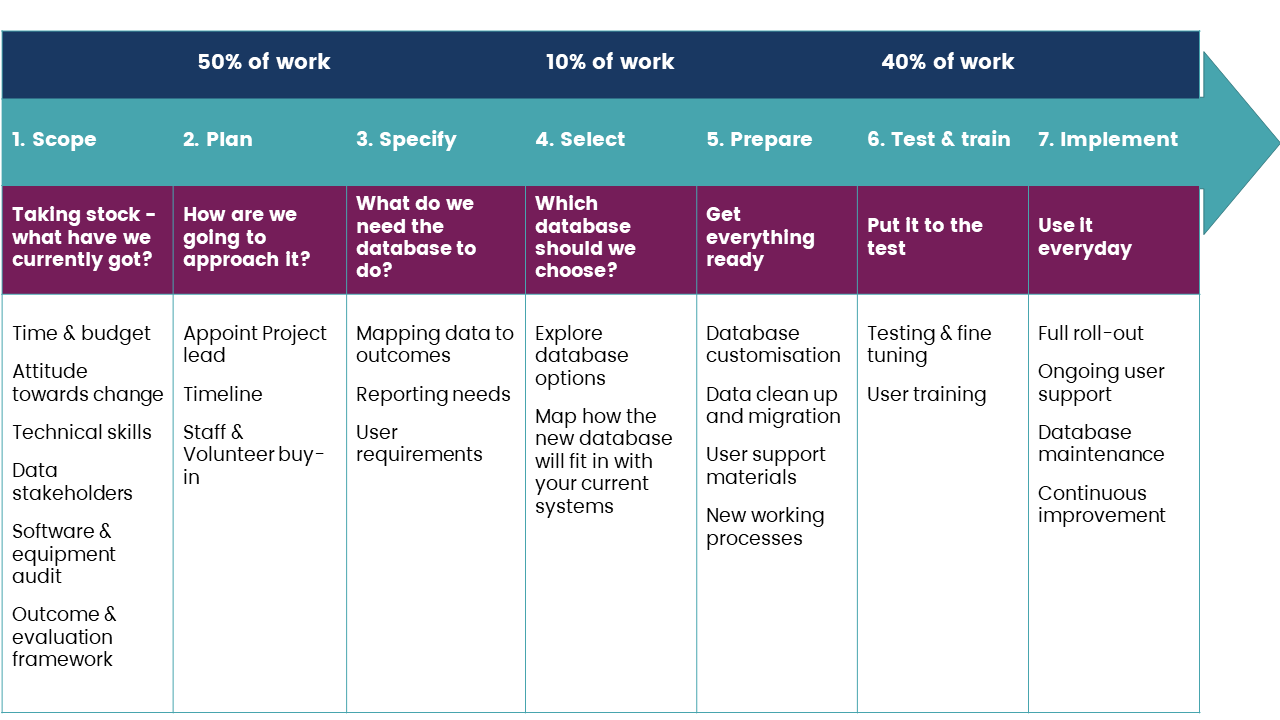Refreshed 27 June 2025
Smaller charities and community organisations frequently ask us for help with their data collection, management and analysis to help service users, improve efficiency and demonstrate impact.
Time is of the essence and we need something now because we’re drowning in spreadsheets. Data collection and reporting is becoming so time consuming.
As organisations grow or mature, choosing a database (or switching to a different one) can quickly become a priority. We've put together a process to help you through this challenge.
7 stages of database implementation
This 7 stage process will help you choose and implement a database that can suit your specific needs.
Each of the stages has practical templates to help you on your way.
Following the stages can:
- Allow you to strike certain databases off your list because they can’t meet your needs
- Ensure you can ask the right questions when speaking to database companies
- Help you keep your vision proportionate to your operations and budget
- Understand the impact on everyone in your organisation - from frontline staff to managers
- Put the structures in place to be able to undertake what is actually quite a big job
Let’s go to Stage 1 to Scope your project.
Can I skip to the list of databases?
We just want someone to tell us which is best, and which one we should use.
We have researched some of the most often used systems and given an overview of what they can and can’t do.
If you are ready to make your choice you can skip to Stage 4.
However, we urge you to follow the stages in order. 50% of a successful implementation of a new system takes place before you choose a specific product.
Is a database the same thing as a CRM?
People also refer to a database as a CRM (Customer Relationship Management system). We’ve avoided using this term because there are CRMs for all sorts of ‘customers’: your members, donors, volunteers, partners etc.
We tightly focus on databases defined as:
a system that collects and analyses data about your service users, how they engage with you and the impact of that.
Contact

Datawise London is a partnership led by Superhighways at Kingston Voluntary Action.
If you are interested in finding out more about the project and its resources or would like to share your own data ideas and challenges please contact us.

